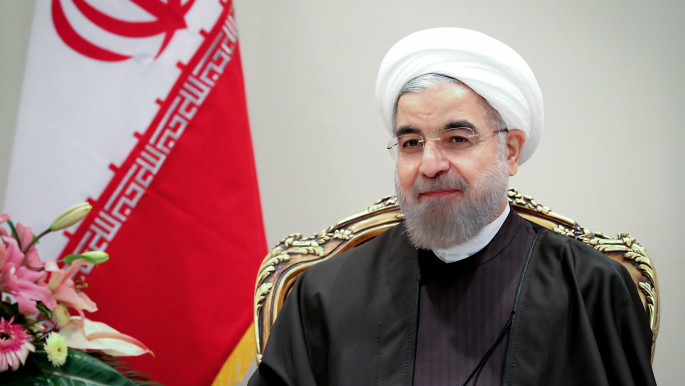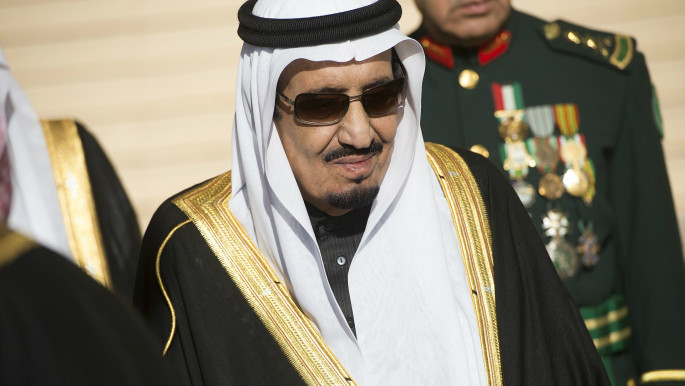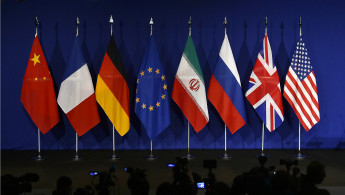Iran nuclear deal - the world reacts
Iran and six world powers have agreed the framework of a potentially historic deal aimed at curbing Tehran's nuclear drive and marking a major breakthrough in a 12-year standoff between Iran and the West.
Raising hopes that the deal could help stability in the Middle East, al-Araby al-Jadeed looks at reactions to the deal:
The president of Iran, Hassan Rouhani said on Twitter that "Iranian people's vote for moderation and tireless efforts by negotiating teams are to open new horizons."
Iran's foreign minister, Mohammad Javad Zarif, who negotiated the deal, called it a "win-win". "This is only a first step. We need to start moving in the direction of restoring confidence, a direction in which we have managed to move against in the past."
Zarif added that Iran was "committed to start drafting the comprehensive nuclear deal immediately" and "all will be served by a serious agreement based on mutual respect".
Iran nuclear deal - click here to read the key points
US President Barack Obama said the deal was a "historic" agreement that "meets our core objectives", but cautioned that more work needed to be done.
"The issues at stake here are bigger than politics. These are matters of war and peace, and they should be evaluated based on the facts."
Obama said the deal, if completed, would make US, allies and the world safer, but also warned that "if Iran cheats, the world will know it".
 |
|
| Rouhani hailed the "tireless work" of Iranian negotiators. |
The US secretary of state, John Kerry said: "We have no illusions about the fact that we have a ways to travel. We still have many technical details that have to be addressed."
The Syrian government praised Iran for the deal, saying "This framework agreement and the positive steps that follow it will be another contribution by Iran on the path towards promoting international peace and security and easing regional and international tensions."
Salman, Saudi Arabia's king, hoped the deal would "strengthen regional and world security" and expressed his hope that a final binding deal would be reached.
Iran and Saudi Arabia have had troubled relations in recent years after taking different sides in the Syrian civil war, and further strain caused by the conflict raging in Yemen.
Turkey's foreign minister, Mevlut Cavusoglu, welcomed the deal stating: "We are very happy that this deal was made," adding that "Iran must do more" to achieve the objective of reaching a final agreement by first of July.
Read more: Diplomacy wins out despite threats of sabotage
The French foreign minister, Laurent Fabius, called the agreement a "very important" step but remained cautious about its success, adding that France wanted a firm deal "to prevent other countries in the Gulf such as Saudi Arabia from embarking on nuclear proliferation".
His British counterpart, Philip Hammond, stressed that there was "still more work to do" but that he believed it was a "good basis for what could be a very good deal".
The Italian foreign minister, Paolo Gentiloni, believed that the final agreement on the nuclear dossier could have "positive effects both with Iran and for developments in various other crisis areas".
The Russian foreign ministry also reiterated Italy's positivity towards "strengthening the legal system of international relations" and considered the solution as "bright proof that the most difficult problems and crisis situations can be resolved through political and diplomatic efforts".
Russia, which built Iran's only civilian nuclear power station, hailed it as a recognition of Tehran's "unconditional right" to pursue a civilian nuclear programme.
 |
|
| Salman said he hoped the dead would strengthen regional security. |
The German chancellor, Angela Merkel, said the international community had never "been so close to an agreement preventing Iran from having nuclear weapons".
However, the tentative agreement was heavily criticised by Israel as a "historic mistake".
The country's prime minister, Binyamin Netanyahu, voiced his "strong opposition" in a telephone call to Obama, stating that the final deal based on this agreement "would threaten the survival of Israel".
He said the deal would legitimise Iran's nuclear programme and increase Iranian "aggression and terror". He urged the world to increase pressure on Iran until a better deal was achieved.
Israeli government spokesman Mark Regev said: "This framework is a step in a very, very dangerous direction", adding that Iran's "single goal" was to build a nuclear bomb.





 Follow the Middle East's top stories in English at The New Arab on Google News
Follow the Middle East's top stories in English at The New Arab on Google News

![Israeli forces ordered bombed Gaza's Jabalia, ordering residents to leave [Getty]](/sites/default/files/styles/image_330x185/public/2176418030.jpeg?h=a5f2f23a&itok=_YGZaP1z)
